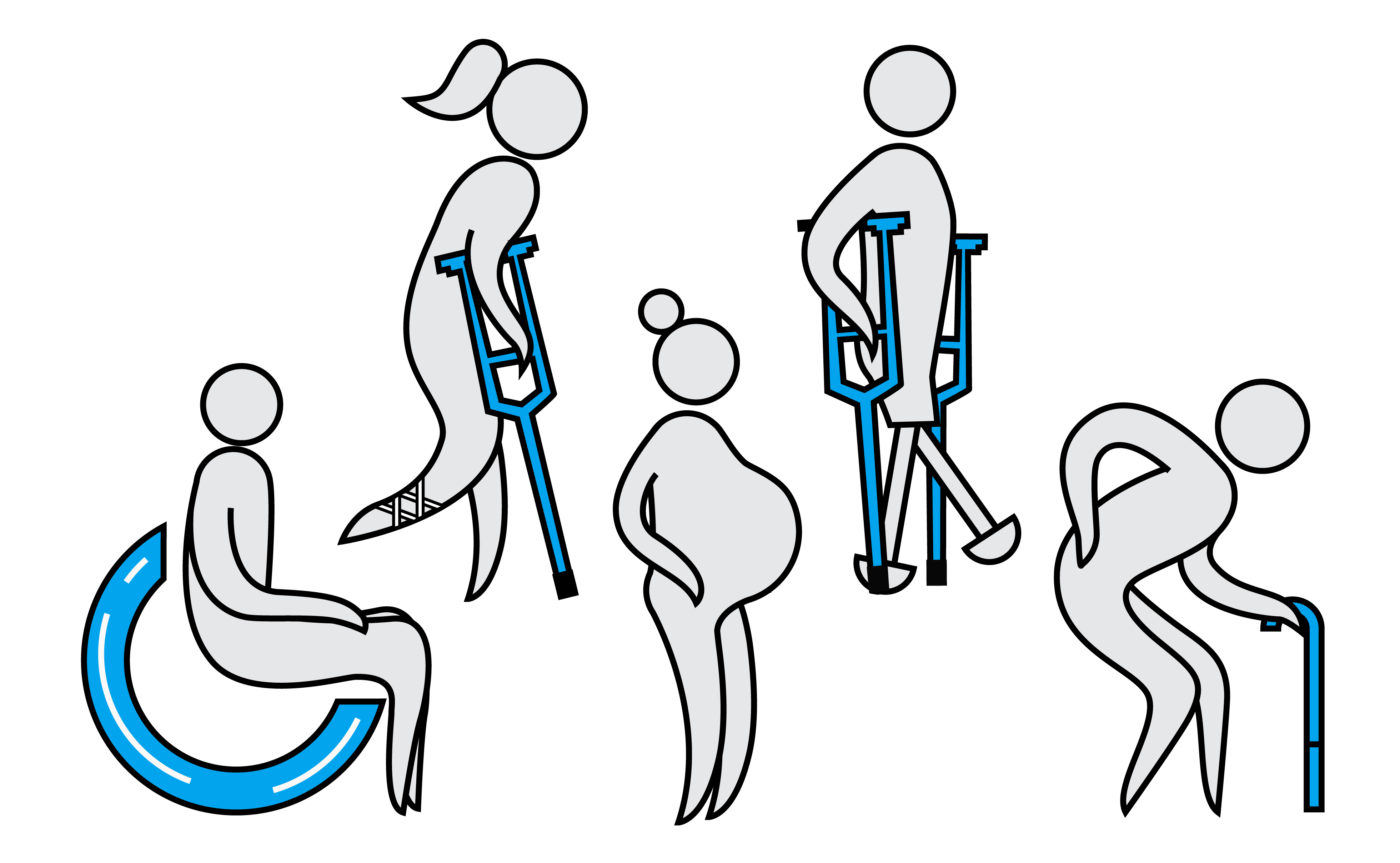EVERY SATURDAY, a group of Ateneans visits Cottolengo Filipino, a home for orphaned children with special needs. They are welcomed with warm smiles and tight hugs.
The facility, with its surrounding lush trees and sprawling villas, makes it easy to forget that it is just a few miles away from the city. Owned and managed by Little Works of Divine Providence Congregation and accredited by the Department of Social Welfare and Development, Cotto is a sanctuary for residents and guests alike. However, the area’s true highlight is the children—the “angels of Cottolengo”—as the facility houses over 50 disabled persons, as of writing.
Cotto is one of Ateneo Special Education Society’s (Speed) engagement areas. The two are working hand-in-hand in advocating the rights and well-being of persons with special needs (PWSNs).
By the numbers
As the United Nations (UN) defines it, persons with disabilities (PWDs) include people who have “long-term physical, mental, intellectual or sensory impairments which in interaction with various barriers may hinder their full and effective participation in society on an equal basis with others.”
Based on the 2010 Census of Population and Housing, 1.443 million people or 1.57% out of the 92.1 million household population in the country have disabilities. It was also recorded that there were more males than females considered to have disabilities, comprising 50.9% and 49.1%, respectively.
In the Philippines, the National Council on Disability Affairs (NCDA) serves as the central authority of the government for all disability-related concerns. They are in charge of implementing policies and laws for the empowerment and development of PWDs as a matter of right.
By the laws
PWDs were long before seen as objects of ridicule, as media usually portrays them as people discriminated on the basis of their disabilities. Because of this, the Magna Carta for Persons with Disabilities (RA 7277) was signed into law in 1992 to protect the rights and well-being of PWDs, which included provisions on health and rehabilitation, education, employment and self-development.
Later on, in 2006, it was amended as RA 9442, and further emphasized prohibition against ridicule of PWDs. Through the partnership between the Movie and Television Review and Classification Board (MTRCB) and NCDA, PWDs treated as subjects of foul jokes and ridicule were minimized, if not eliminated. “With RA 9442, the government and the society in general slowly recognizes the inherent rights and dignity of persons with disabilities who should be treated with respect,” Carmen Reyes Zubiaga, executive director of NCDA, explains.
According to an article by Manila Bulletin, current legislations entitle PWDs (who have already secured a PWD identification card) to benefits such as 5% discount on basic necessities and prime commodities, and 20% discount on hotels, restaurants and recreational activities, medical services, domestic air and sea travel, toll fees, railways and bus fares.
In terms of employment opportunities, all government agencies are mandated to reserve at least 1% of all positions for PWDs. Private companies, on the other hand, are motivated to reserve at least 1% of all positions. According to Department of Labor and Employment Secretary Rosalinda Dimapilis-Baldoz, this provision was added in order to stimulate productivity among qualified PWDs and to ensure lucrative employment.
Persistent problems
Despite all these benefits, NCDA is still wary about the overall welfare of PWDs facing discrimination, such as inaccessible workplaces and barriers in transportation, public accommodations and telecommunications. According to Zubiaga, “PWDs’ needs are neglected because they are perceived as useless, a shame and burden to families and society in general.”
To this day, the issue of exclusion persists, even with the Philippine ratification of the UN Convention on the Rights of Persons with Disabilities last 2008. Zubiaga said that the key to address this issue is through “inclusive development.” “Inclusion can be achieved by mainstreaming disability in a regular program or through the development of disability specific programs,” Zubiaga elaborated.
Furthermore, she stressed the need for more leaders with advocacies leaning towards the rights and causes of PWDs as local government units are still unprepared for responsibilities and accountabilities with regards to the PWD sector.
Movement towards betterment
In the spirit of being men and women for others, many Ateneans are actively involved in upholding the welfare of PWDs. In an interview with The GUIDON, Nicole Sy, vice president for Advocacy of Ateneo Speed, explained their vision of an inclusive society for the PWSNs. “[An inclusive society is one] that [would] provide for their needs and afford them the opportunities to grow and develop as human beings, in their own ways.”
Sy further elaborated on the organization’s two-pronged approach on the situation of PWSNs: Promoting awareness for the society towards acceptance, and improving programs and facilities, such as public special education (SpEd) schools, in the Philippines.
Members and even non-members in partner institutions, such as Cotto and the Sacred Heart Center in Quezon City, do weekly area visits for immersion. During these visits, certain modules are carried out depending on the needs of each institution. A disability awareness week was also launched to promote inclusivity among the Ateneo community, where activities such as workshops on Down Syndrome and #NoToLabels poster campaigns were held.
With the increasing involvement by different organizations in the country, Sy remains optimistic about the future of PWDs in the Philippines. She foresees an environment that would provide necessary services for PWDs that will allow them to participate more in the society, giving opportunities to grow, develop and reach their potentials as human beings. Zubiaga also anticipates a brighter future where PWDs may enjoy their rights as contributing citizens of the society while being treated with due respect and dignity.
For her, addressing disability is anticipating the needs of all citizens. She explains, “All of us, in one way or another, will experience some form of disability in our lifetime.”
What do you think about this story? Send your comments and suggestions here: tgdn.co/2ZqqodZ




